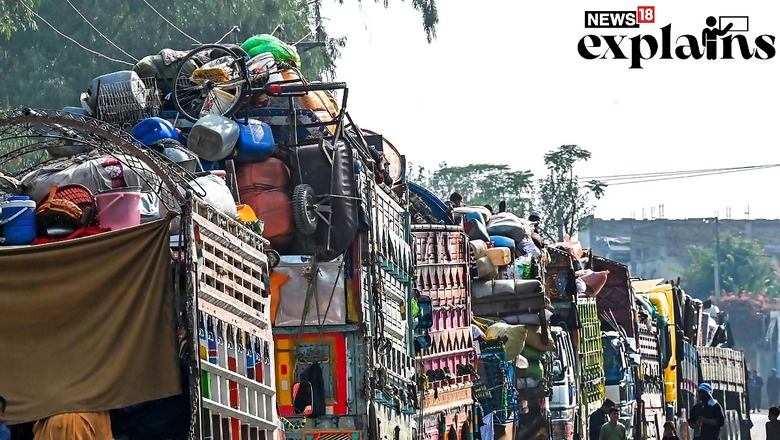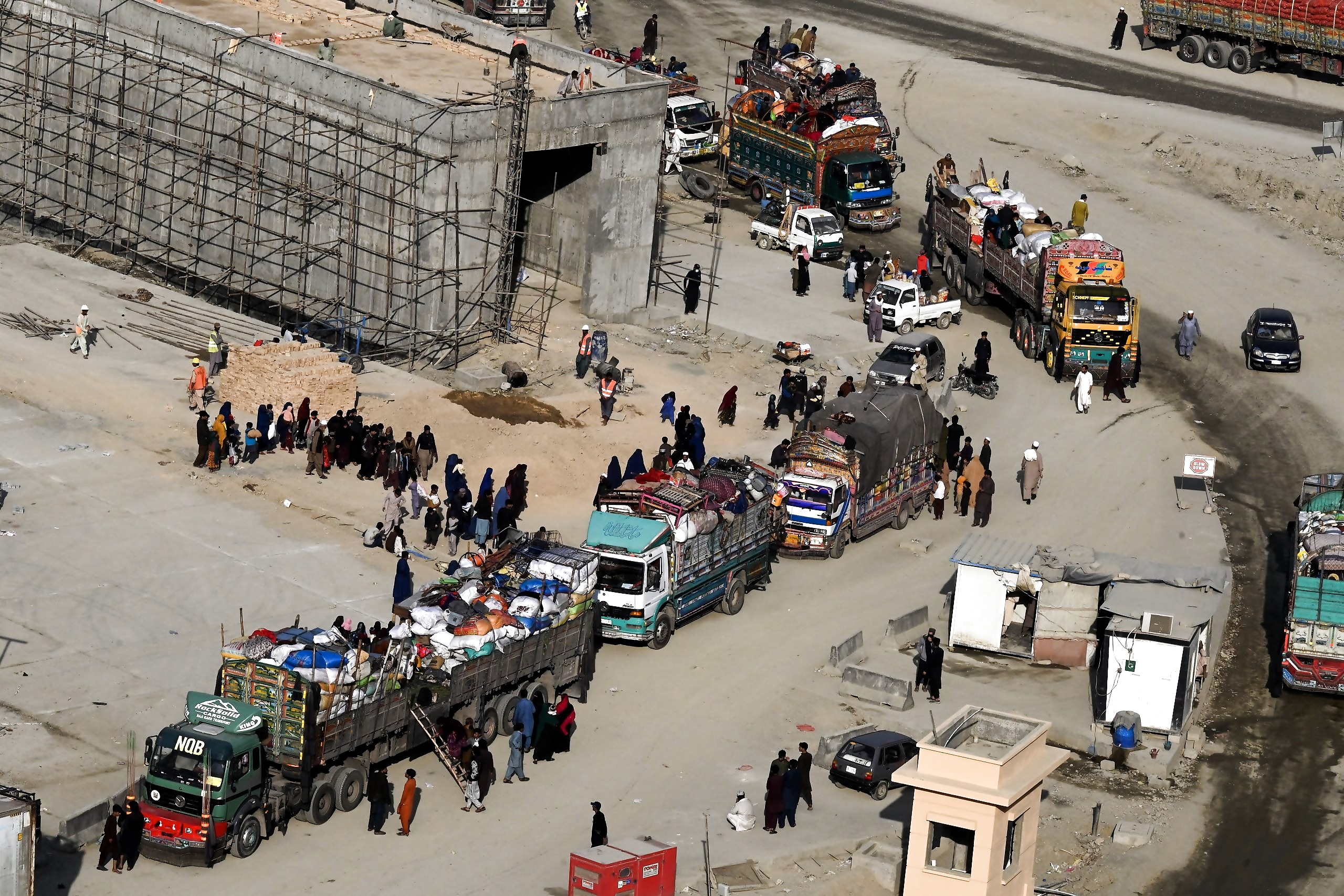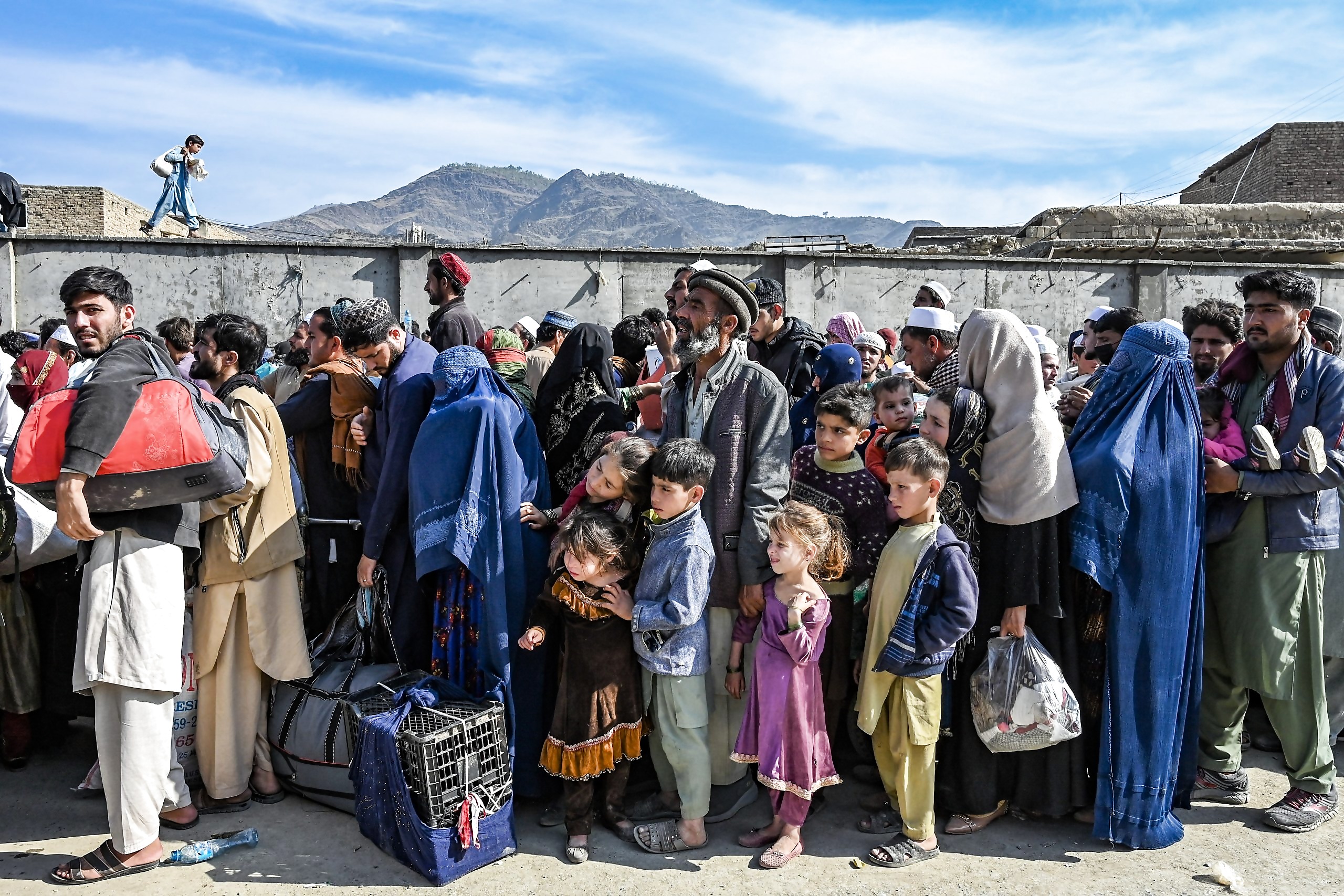
views
Large numbers of Afghans crammed into trucks and buses in Pakistan heading to the border to return home as the Pakistani government deadline expired on Wednesday. The Pakistani government has given 17 lakh Afghans living in the country illegally until Wednesday (November 1) to leave the country voluntarily, or else face arrest and deportation.
Rising militancy, an economic crisis and souring relations between the Taliban government in Afghanistan and Pakistan are behind the mass eviction announced by the government last month.
There are reportedly more than two million undocumented Afghans living in Pakistan, with at least 600,000 of them leaving Afghanistan after the Taliban takeover in August 2021, according to UNHCR.
Why is Pakistan deporting Afghans?
Pakistan’s government said the deportation of Afghans they say are living illegally in Pakistan is driven by a security crisis, after a spike in the number of attacks in Pakistan’s border regions over recent months.
Although the government insists it isn’t targeting Afghans, the campaign comes amid strained relations between Pakistan and the Taliban rulers next door.

Islamabad has accused Kabul of turning a blind eye to Taliban-allied militants, such as the Pakistani Taliban (TTP), who find shelter in Afghanistan, from where they go back and forth across the two countries’ shared 2,611-kilometre border to stage attacks in Pakistan.
“There have been 24 suicide attacks since January, 14 of these 24 were carried by Afghan nationals,” caretaker Interior Minister Sarfraz Bugti told reporters when he announced the order at the start of October.
Last year, Former Prime Minister Imran Khan said that the country did “not have the capacity or the economic strength to bear another inflow of refugees”, and the government has repeatedly vowed not to let more Afghans cross the border.
Pakistan is also trying to crack down on cross-border smuggling, which it says is deepening the country’s economic crisis, by tightening controls at legal crossings.
How has Afghanistan reacted?
The Kabul authorities have condemned the deportation order as “cruel and barbaric”, and warned it will further dent relations with Islamabad. Afghanistan is already facing a severe humanitarian crisis, particularly for women and girls, who are banned by the Taliban from getting an education beyond the sixth grade, most public spaces and jobs.
“Pakistan’s expectations of the Taliban regime (about security) have not been fulfilled and (Pakistani authorities) have decided to use this as one instrument to pressurise them,” Muhammad Amir Rana, a security and political analyst and director of Pak Institute for Peace Studies (PIPS).
Hazrat Abobaker Mojadidi, an Afghan spiritual leader, said that the deportation of Afghan refugees is highly concerning. “The deportation of over 1 million Afghan refugees from Pakistan is highly concerning. This may cause a wide-scale humanitarian crisis especially given the cold winter ahead. We urge the government of Pakistan to work with international humanitarian organisations to ensure an effective and dignified resettlement process of Afghan refugees,” he said.

The mass return of Afghan refugees and a tightening of legal crossings for trade will also put pressure on Afghanistan’s fragile economy, which is heavily reliant on international aid. Critics say Afghan refugees are paying the price for a falling out between the two governments.
How will the deportations happen?
The Pakistan government in October gave Afghans until the end of the month to leave voluntarily or start facing arrest and deportation from November 1. In Karachi, many Afghans living in refugee camps claimed that the arrests and raids on homes and business already begun before the Wednesday deadline.
Foundation for India and Indian Diaspora Studies (FIIDS) Analyst Priya Kulkarni observed that social media reported that thousands of Afghans are flocking the border but they are being harassed at the border.
From Wednesday this week, the interior minister has said he would “not compromise” and undocumented Afghans would be arrested and taken to holding centres for deportation.
Amid the looming deadline, thousands of families have rushed to the border to avoid arrest, the crossings are already under huge pressure. More than 2 lakh Afghans have returned home since the crackdown was launched, according to Pakistani officials.
What Have Experts, Rights Group Said?
Observers say Pakistanis have been generally supportive of sending back undocumented Afghans, with a protracted refugee presence putting a heavy burden on the country’s infrastructure.
An editorial in the English language newspaper The Express Tribune said the decision was a “well-considered move”. “It’s late but never too late. The government’s deadline… comes as a challenge, and the onus is on Pakistani authorities to see to it that it is implemented in letter and spirit, and does not pass away as another unkept promise,” it said.
However, there have been calls for a more compassionate approach and a longer timeframe, especially after reports of police harassment, extortion, arrests of children and demolishing of homes.
The UNHCR refugee agency has warned many of those who are facing deportation “will be at grave risk of human rights violations if returned to Afghanistan, including arbitrary arrest and detention, torture, cruel and other inhuman treatment”.
Why are there so many Afghans in Pakistan?
Pakistan is one of the world’s largest refugee-hosting countries, with millions of Afghans pouring into Pakistan over decades of successive wars to seek refuge.
The majority live in Khyber Pakhtunkhwa province which neighbours Afghanistan, and which has a shared Pashtun ethnicity.
According to the UN’s refugee agency, at least 600,000 Afghans fled for Pakistan after the Taliban returned to power in August 2021.
Pakistan has no domestic legal framework for refugees and is not a signatory to the UN Refugee Convention, leaving migrant and refugee Afghans vulnerable to changing policies.
(With inputs from agencies)














Comments
0 comment